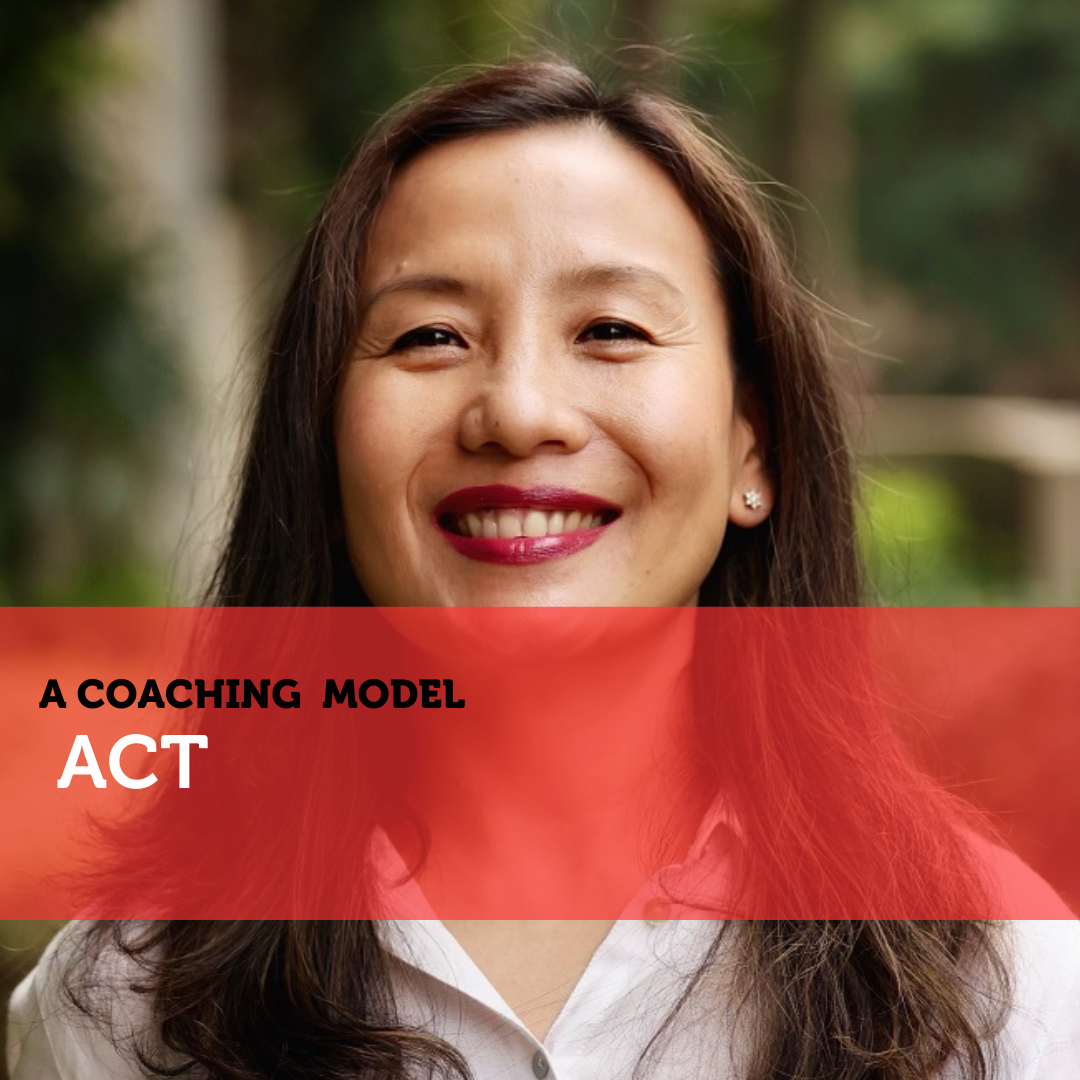A Coaching Model By Kavita Bhandari, Mindset & Life Coach, HONG KONG
 ACT (Awareness, Change, Transformation)
ACT (Awareness, Change, Transformation)
All the beautiful sentiments in the world weigh less than a single lovely action James Russel Lovell
Action is the catalyst that transforms dreams into reality and ideas into tangible results. It is the driving force behind progress, growth, and achievement. Without action, even the most brilliant plans and intentions remain mere fantasies. Action propels us forward, enabling us to overcome obstacles, learn from mistakes, and adapt to changing circumstances. It ignites momentum and creates momentum, fueling a cycle of continuous improvement and success. Through action, we demonstrate commitment, determination, and resilience, showing the world and ourselves what we are truly capable of. It is through action that we make a meaningful impact on our lives, the lives of others, and the world at large. Whether big or small, every action carries the potential to create ripples of positive change, inspiring others and leaving a lasting legacy. Therefore, embracing action and embracing its transformative power is essential for personal growth, professional success, and the betterment of society as a whole.
The Stages of ACT Coaching Model
Awareness:
The first step in the ACT life coaching model is to cultivate awareness. This involves helping individuals gain a deep understanding of themselves, their strengths, weaknesses, values, beliefs, and patterns of thinking and behavior. Through various techniques such as self-reflection, introspection, mindfulness, and assessments, clients develop a clear picture of their current reality and gain insights into their goals and aspirations.
Key activities in the Awareness stage:
Self-reflection exercises: Encourage clients to explore their thoughts, emotions, and experiences to gain clarity about their desires, values, and motivations.
Mindfulness practice: Teach clients mindfulness techniques to increase present-moment awareness and observe their thoughts and feelings without judgment.
Assessments and questionnaires: Utilize various assessments and questionnaires if necessary to help clients uncover their strengths, personality traits, and areas for growth.
Change:
Once clients have developed a strong sense of self-awareness, the next step is to facilitate change. This stage focuses on helping clients identify specific areas of their lives they want to improve or change and supports them in developing strategies to achieve their goals. Coaches guide clients in exploring different perspectives, challenging limiting beliefs, setting realistic objectives, and creating action plans.
Key activities in the Change stage:
Goal setting: Assist clients in setting specific, measurable, achievable, relevant, and time-bound (SMART) goals that align with their values and aspirations.
Challenging limiting beliefs: Help clients identify and reframe limiting beliefs that may be holding them back from making positive changes.
Action planning: Collaborate with clients to develop concrete action plans, breaking down larger goals into smaller, manageable steps.
Accountability: Support clients in staying accountable to their commitments and track their progress towards desired changes.
Transformation:
The final stage of the ACT life coaching model is transformation. In this stage, clients go beyond making surface-level changes and undergo a profound transformation that aligns with their authentic selves. Coaches help clients integrate their newfound awareness and changes into their daily lives, foster resilience, and cultivate lasting personal growth.
Key activities in the Transformation stage:
Integration: Assist clients in integrating their new beliefs, behaviors, and perspectives into their daily lives and relationships.
Resilience building: Help clients develop resilience and coping strategies to navigate challenges and setbacks along their transformational journey.
Celebrating progress: Acknowledge and celebrate the milestones and progress achieved by clients, reinforcing positive changes and fostering motivation.
Continued growth: Encourage clients to embrace lifelong learning and personal growth, supporting them in sustaining their transformational journey beyond coaching.
The ACT life coaching model is a flexible framework, and the specific techniques and activities used may vary depending on the individual client and their unique needs and circumstances.
Learn How to Create Your Own Coaching Model
Your Coaching Model reflects your values,
philosophies, and beliefs and must communicate who you will coach
and the problems you will solve. Read more about creating your coaching model
